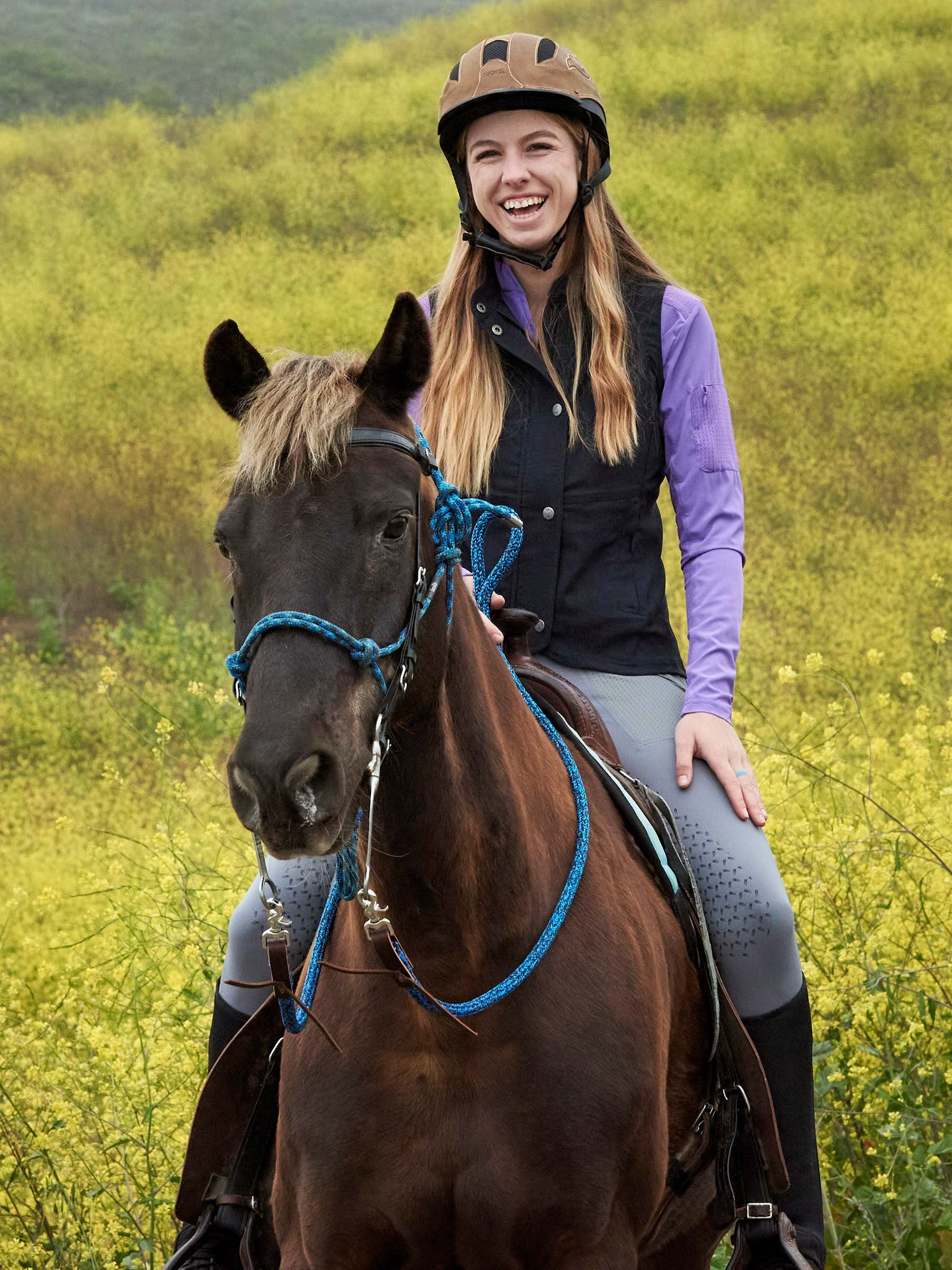How to Get the Most Out of Your Clinic
When you're an equestrian, you are always learning something new! Clinics are a great opportunity to learn from experienced people in the equine industry, whether they are a horseback rider, a veterinarian, or another professional. If you find a clinic you're interested in attending, with or without your horse, it can sometimes be difficult to know what to expect. We understand wanting to feel like the time, money, and energy you invested into the clinic was worth it, so we partnered with Olympian Stephen Bradley for his expert advice on how to get the most out of your clinic experience. Let's start with some of his general insights on clinics:
"Clinics can be incredibly valuable for both riders and their horses. Whether you're a seasoned competitor or a novice rider, attending a clinic offers a unique opportunity to learn from experienced trainers and refine your skills. I'm lucky to teach all over the country, and I have some tips to help you make the most of your clinic experience."
Maximize Your Clinic Experience
Choose the Right Clinic
As I've often stressed, researching the clinician's background and teaching style is crucial to ensure a productive learning experience. Consider your own riding goals and the specific needs of your horse. A clinician with a strong track record in your discipline and a teaching approach that resonates with you will enhance your learning experience. Consider auditing a couple of clinics if you are not sure!
Set Clear Clinic Goals
Before attending a clinic, set clear and achievable goals. Each clinic is an opportunity to address specific aspects of your ride. What certain skills or issues would you like to work on? Communicate these goals to the clinician beforehand so they can tailor their instruction to you. Having clear goals helps you and the clinician stay focused and measure progress!
Prepare Your Horse
Preparing your horse physically and mentally is vital for a successful clinic. Pay attention to conditioning, grooming, and the overall well-being of your equine partner. Additionally, familiarize your horse with the clinic environment. A relaxed and well-prepared horse will be more receptive to learning.
Listen Actively
This one might seem like common sense, but make sure that you're listening during the clinic—not just to what the clinician is saying directly to you, but to the other riders in your group as well. Absorb the clinician's instructions and feedback, and don't hesitate to ask questions when needed. Even if you are struggling to understand, embracing new techniques and exercises can lead to significant improvements. Approach the clinic with an open mind, and be receptive to trying different approaches to achieve your goals.
Be Patient
Clinics can be demanding, and progress may not always come as quickly as you hope. Be patient with yourself and your horse, keeping in mind that improvement is a gradual process. As a rider, I find that it is crucial for me to stay forward thinking with an optimistic mindset. Remain positive and remember that the journey is as important as the destination.
Take Notes
Bring a notebook to jot down key takeaways and exercises covered during the clinic. Recording sessions (with the clinician's permission) can also be a valuable tool for future reference. So much learning happens in the post-ride process; it is hard to soak in every last thing while you're riding, so make sure you are prepared to capture the information to go over later.
Apply Your Knowledge
After the clinic, incorporate the lessons and techniques into your regular training routine, if you found them useful. Consistency is the key to progress! Share the things you liked about the clinic with your regular trainer or instructor. Often, I've observed that issues raised during clinics align with areas your regular trainers have been addressing for some time. The clinic experience can be the catalyst for riders to make big changes. Sharing fresh visualizations or using key phrases that were particularly helpful during the clinic can help your regular trainer to further refine your skill set.
Reflect and Improve
Take time to reflect on your clinic experience. What worked well, and what challenges did you face? Evaluate your progress toward your goals. This self-assessment will help you make informed decisions about future clinics and training.
Enjoy the Journey
Remember that learning is a lifelong journey. Every horse and rider can improve, regardless of their experience level. Your horse will appreciate your dedication to their well-being and growth. Above all else, it is important that you are enjoying your time with your horse. Building a strong partnership and continuing to keep an open mind to learning will serve you better than any lesson. Embrace the learning process, savor each accomplishment, and treasure the moments spent with your horse.
Closing Thoughts
We hope these tips from Stephen Bradley, a professional eventer and teacher, helped offer insight on how to best prepare for a clinic. As a clinic attendee, it takes intentionality before, during, and after the experience for you and your horse to get the most out of it! Should you have any questions, we invite you to contact our friendly customer service team at 1-800-620-9145 or info@ridingwarehouse.com. In the meantime, let's close on some last words from Stephen Bradley:
To stay up to date on Stephen's work, check out Stephen Bradley Eventing!


